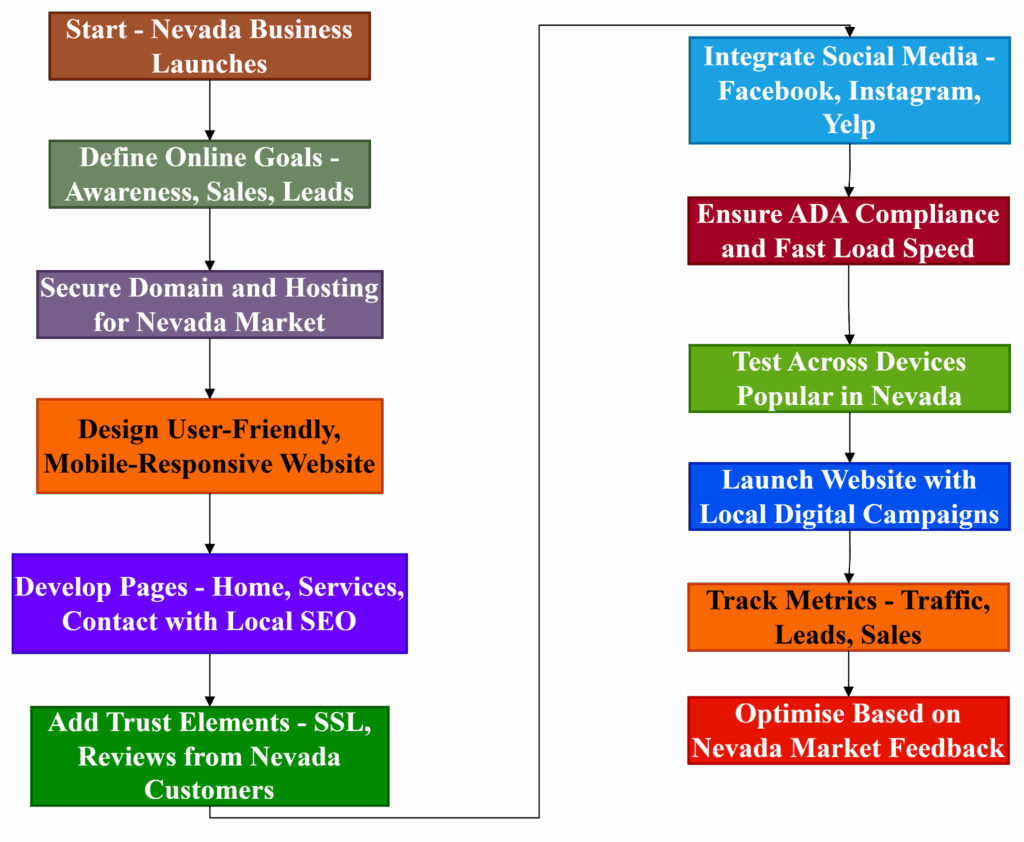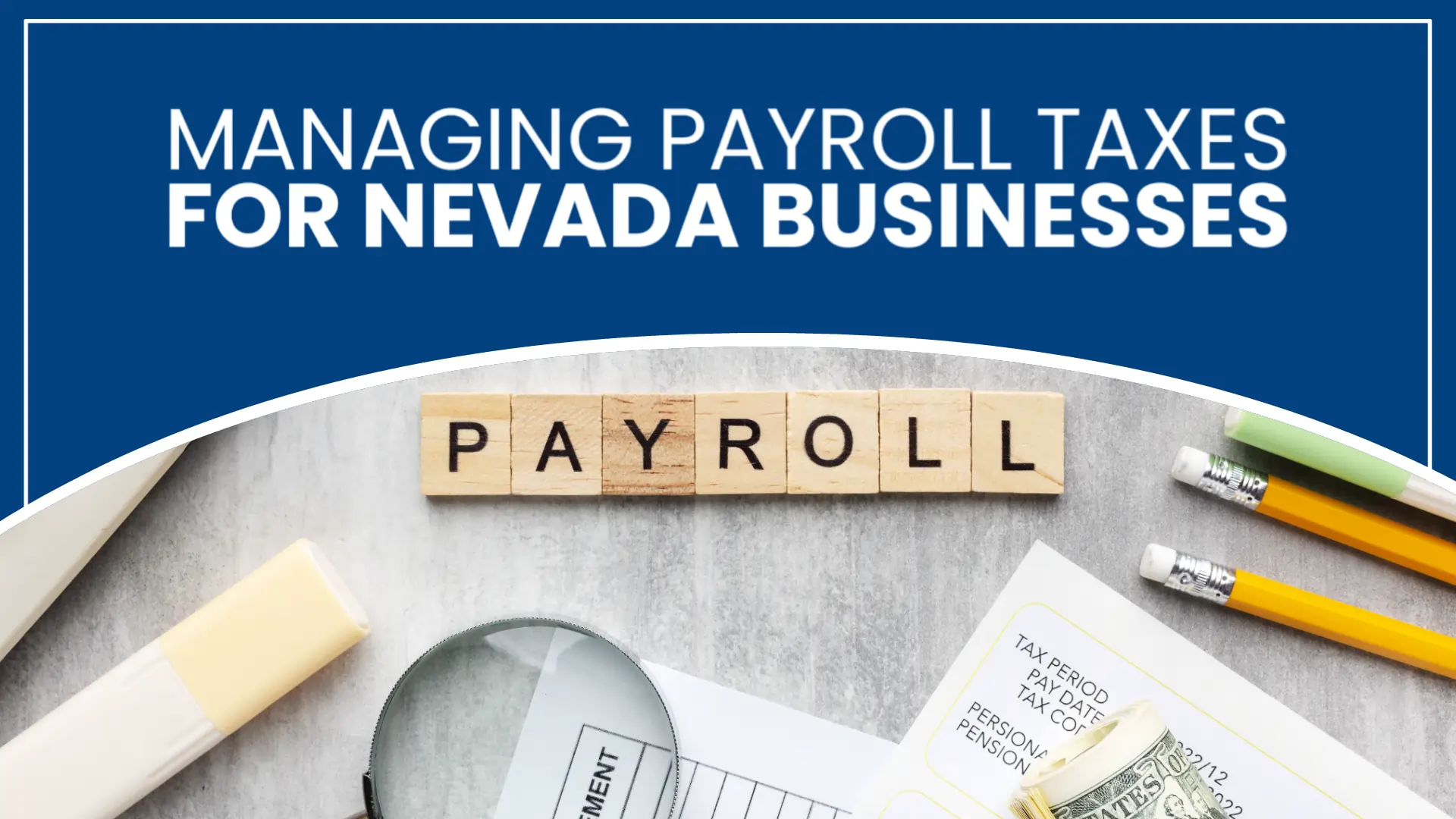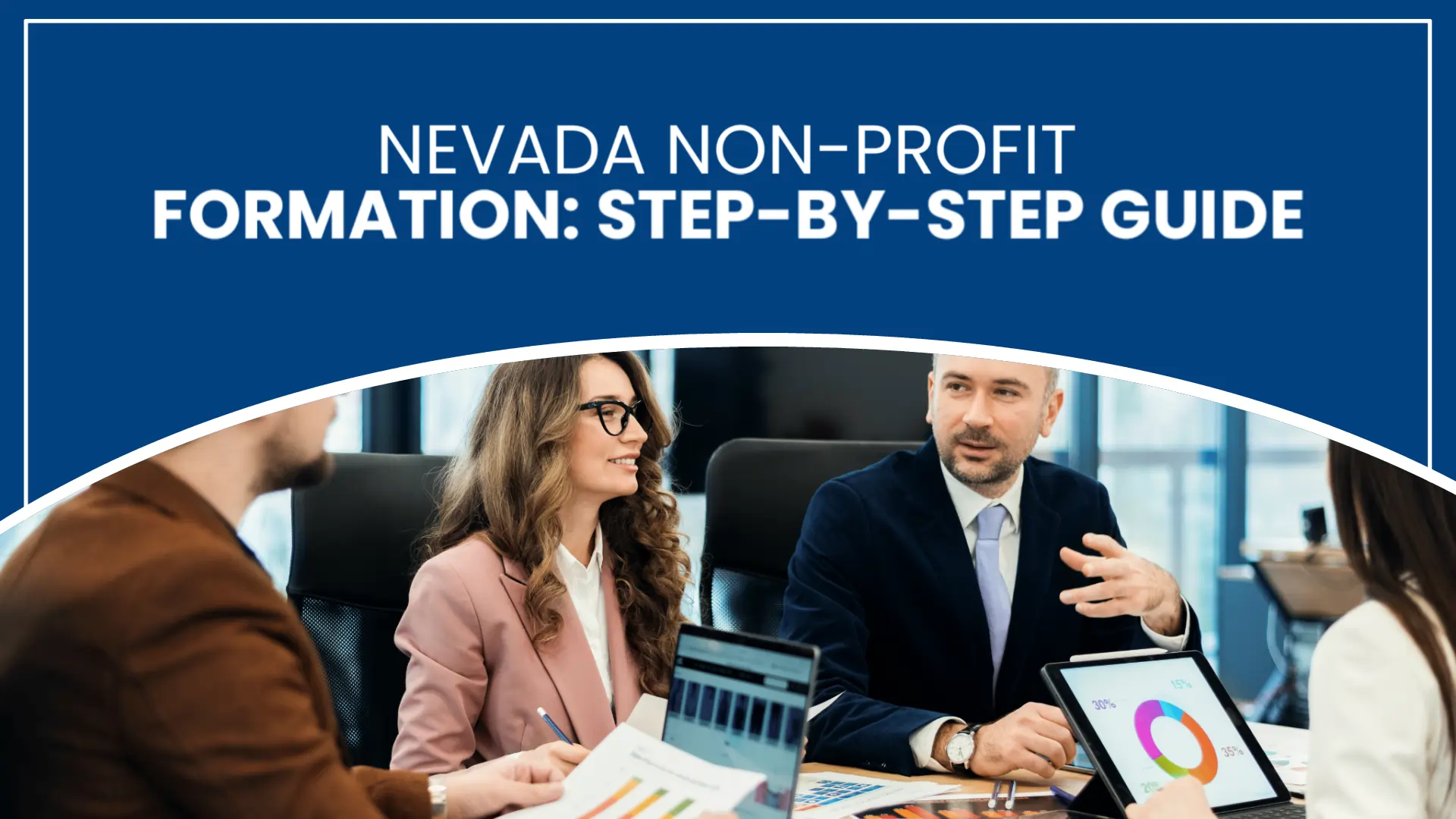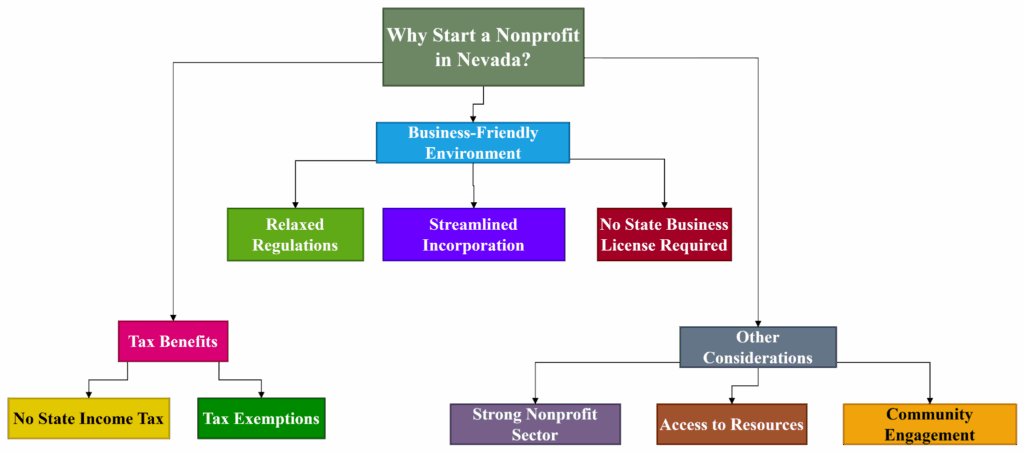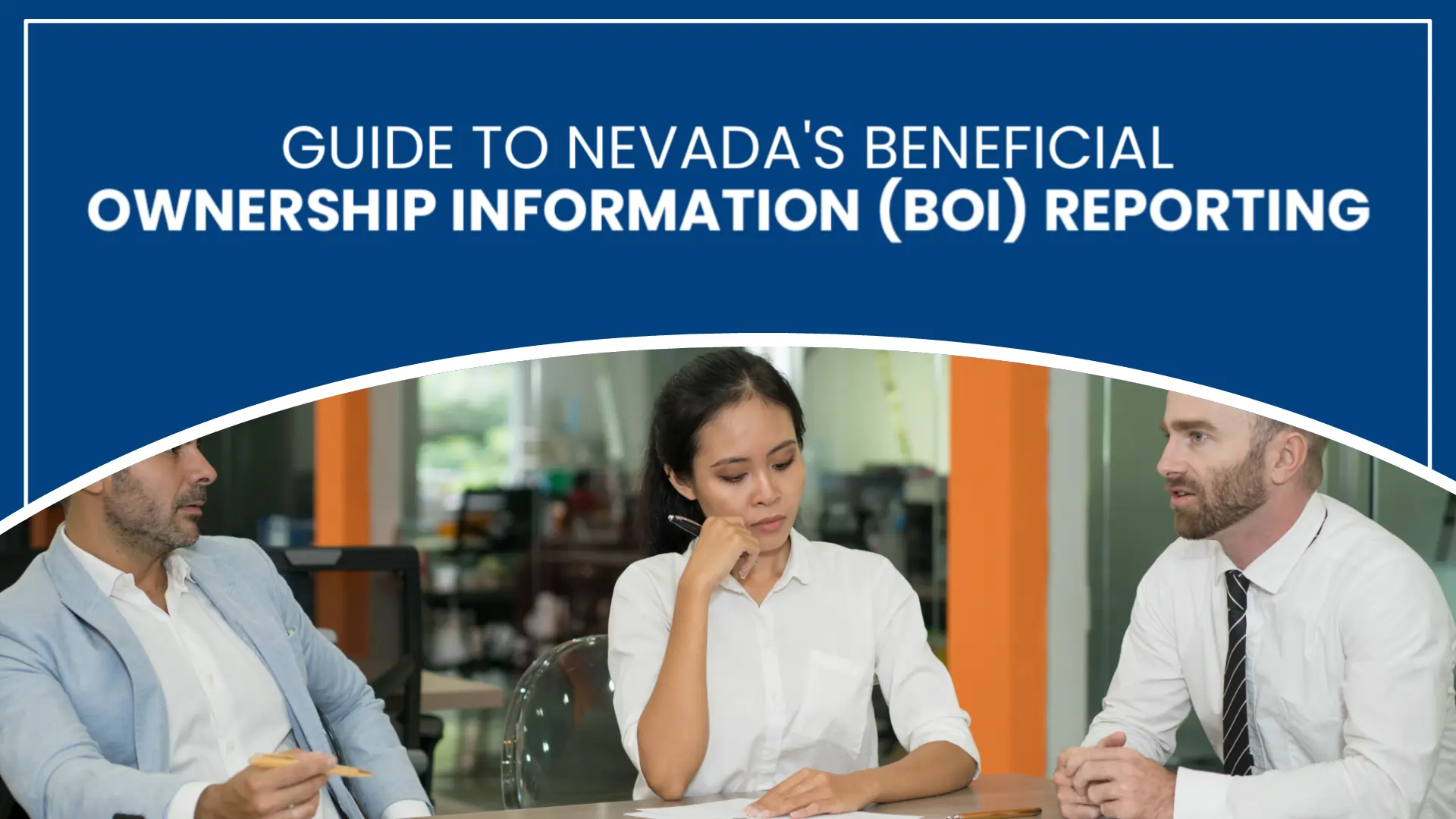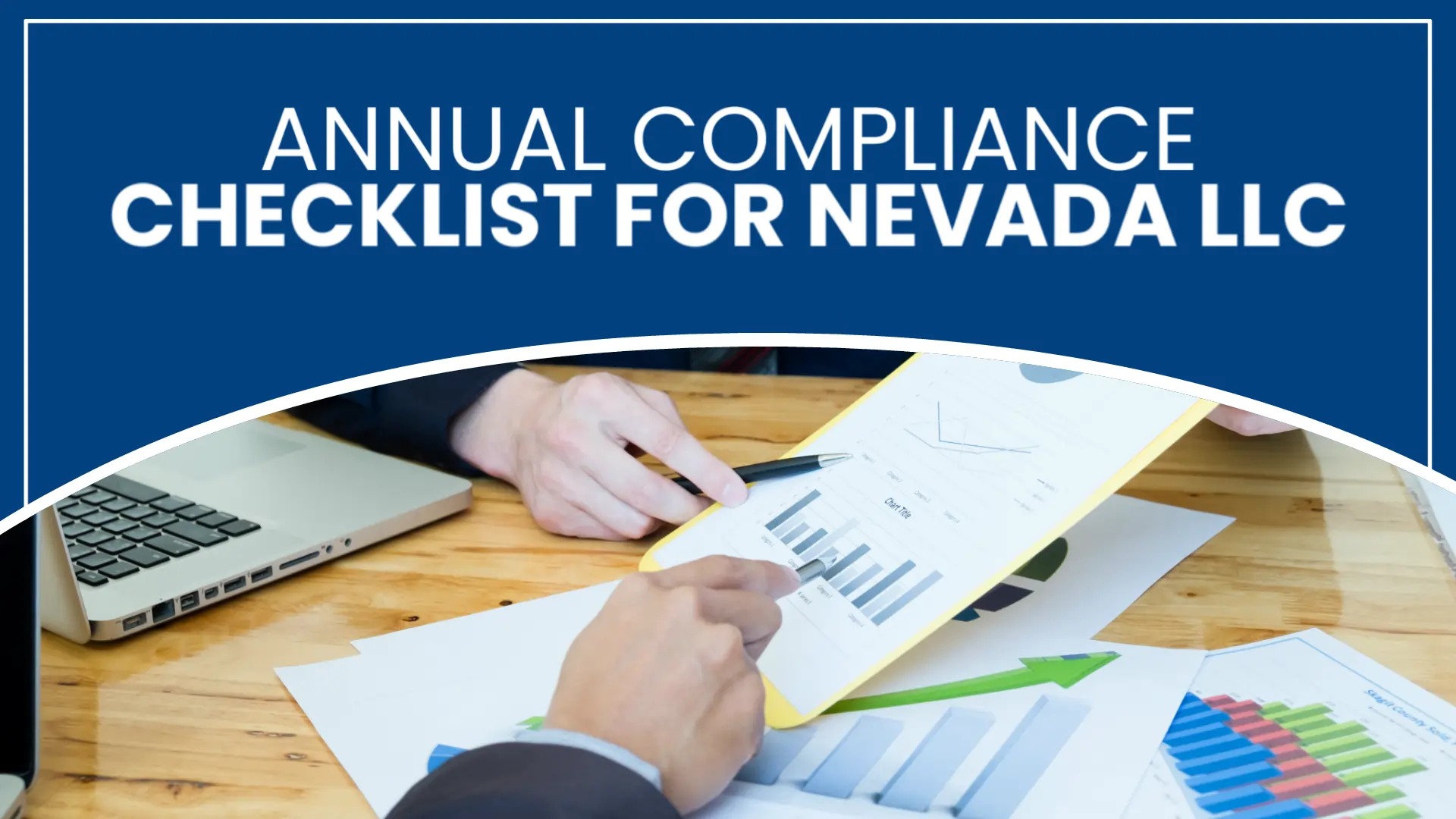1. Introduction: What is a Registered Agent & Why It’s Required
A registered agent is appointed or employed to receive any communication that is official and legal about the business organisation. In Nevada businesses including LLCs and corporations are required to file an agent. registered agent is necessary to satisfy the Nevada Secretary of State’s legal requirement for service of process. Otherwise, penalties may be imposed and the liability of the company becomes at risk. It is recommended to seek additional help from a registered agent to eliminate such events because it will optimise the work concerning compliance, privacy, and management.
2. What to Look for in a Registered Agent
The legal status of the company and the performance of the official legislative framework by the laws of Nevada depend on the choice of the necessary registered agent. The factors that might be useful when selecting a registered agent are pointed out below in the table.
| Factor | Description | Why It’s Important |
| Reliability & Availability | Must be available during business hours to receive legal documents. | Ensures timely receipt of critical notices, preventing missed deadlines and legal issues. |
| Compliance Expertise | Knowledge of Nevada’s business regulations, filing deadlines, and legal requirements. | Helps businesses stay compliant with state laws and avoid penalties. |
| Privacy & Security | Uses their address instead of the businessman’s public records. | Protects personal/business addresses from unwanted solicitations and privacy breaches. |
| Cost & Service Value | Fees typically range from $50 to $300 per year, with additional services offered. | Ensures to get the best value for money with compliance monitoring, mail forwarding, etc. |
| Nationwide Coverage (if applicable) | Service is available in multiple states, not just Nevada. | Ideal for businesses operating in multiple jurisdictions, ensuring consistency. |
Table 1: Nevada Registered Agent Key Factors (Source: Self-Created)
Choosing a correct registered agent is a significant issue that has an impact on legal, compliance and business processes. The most important criteria in selecting these agents are availability, their knowledge of regulations, and their focus on data protection to ensure important legal documents and filings are completed promptly. Licencing is crucial in this respect as it ensures that the registered agent complies with all the relevant rules and regulations of the state, keeps important information secure to avoid penalties, and also to avoids any legal disputes due to noncompliance with the state’s legal deadlines.
3. Top Registered Agent Services in Nevada
It is important to select the proper registered agent for an LLC in Nevada to maintain legal noncompliance and privacy. Several best services fulfil the multifaceted needs of the business organisations including compliance monitoring, safety and privacy services and legal assistance. Businesses that are most concerned with privacy should consider registering with Northwest Registered Agent. They offer virtual office spaces to manage a business’s official address to avoid revealing private information, and they also give business compliance services. ZenBusiness is a low-cost solution suitable for startups and first-time entrepreneurs who need a cheap formation service and/or a registered agent.
For companies that are formed in different states, Harbour Compliance has the tools to manage compliance and a package of registered agents that will not be too expensive. Despite the availability of different packages, MyCompanyWorks offers only the basic and the standard packages, which are sufficient to offer compliance to Nevada LLCs. If the priority is on obtaining high-quality legal support, LegalZoom is a company that has positioned its services for already developed businesses. Bizee (previously Incfile) is an affordable solution, that assists LLCs with their compliance documents. Swyft Filings offers reminders for deadlines and mail services and Rocket Lawyer offers registered addresses and free consultations of a legal nature. Each service has different fees and offers, so it is essential to choose the best registered agent based on business requirements, such as reasonable prices, professional legal service, or compliance across the nation.
| Registered Agent Service | Key Features | Best For | Price |
| Northwest Registered Agent | Strong privacy protection, business address, in-house services | Businesses prioritizing privacy and security | £100/year (first year free with LLC purchase) |
| ZenBusiness | Affordable formation and registered agent services | New LLCs and small businesses | £160/year |
| Harbor Compliance | Compliance tracking tools, multi-state coverage | Businesses operating in multiple states | £70–£80/year |
| MyCompanyWorks | Basic and comprehensive registered agent packages | LLCs needing essential compliance services | £95/year (first year free with certain packages) |
| LegalZoom | Wide range of legal and business services | Established businesses needing premium support | £200/year |
| Bizee (formerly Incfile) | Helps with compliance and paperwork management | Budget-conscious LLCs | £95/year (first year free with LLC purchase) |
| Swyft Filings | Mail notifications and government deadline reminders | LLCs needing ongoing compliance support | £120 every 3 months |
| Rocket Lawyer | Legal support and registered agent services | Businesses needing legal consultations | £200/year (£100/year with Rocket Legal+) |
Table 2: Top Registered Agent Services in Nevada (Source: Self-Created)

4. How to Appoint or Change Your Registered Agent
In order to appoint or change an agent in Nevada, the businesses must go through the following procedures. First, they have to obtain the “Statement of Change of Registered Agent by Represented Entity” for which they have to visit the official website of the Nevada Secretary of State.
After obtaining the form, one is required to fill some information in the form. This includes a new registered agent’s name and physical address, business name, and Nevada Business Identification Number (NVID). The Certificate of Acceptance also needs to be signed by the new registered agent, especially due to the fact that it is required for the change to be valid.
After completion of the form, an authorisation from the business must be received through a signature and date to indicate the change. After filling out the form, they are supposed to attach the form along with the consolidated filing fee of $60 and they can submit it through mail, fax email or in person to the Nevada Secretary of State. The ordinary office mailing address is for routine filing while express filing can be done at the North Las Vegas City Hall. As for the payment, the client can make payment using a credit card/cheque or any other online mode.
The change of the registered agent will appear in that particular state’s records after being approved by the Secretary of State upon submission of the letter. The estimated time to complete the order is within 5-10 business days; however, faster services are also possible. It is also recommended that the various business departments notify all the various stakeholders about the change so that any legal or official correspondence reaches the right address in the future.
| Step | Description | Important Notes |
| 1. Find the Right Form | The business must download the “Statement of Change of Registered Agent by Represented Entity” form from the Nevada Secretary of State website. | It is crucial to ensure the correct form is chosen to avoid delays in processing. |
| 2. Complete the Registered Agent Section | The new registered agent’s name and physical address in Nevada must be provided. | Nevada requires that the registered agent has a physical address in the state (P.O. boxes are not permitted). |
| 3. Provide Business Entity Information | The business must include its legal name and Nevada Business Identification Number (NVID) as registered with the Secretary of State. | The NVID can be obtained through the Nevada business search tool. |
| 4. Obtain Registered Agent’s Consent | The new registered agent must sign the Certificate of Acceptance on the form, indicating their consent to represent the business. | If the registered agent does not sign this section, the filing will be deemed invalid and rejected. |
| 5. Choose Electronic Notification (Optional) | The business can opt to receive electronic notifications regarding the change. | This is an optional step but ensures the business is promptly updated about the registered agent change. |
| 6. Authorise the Change | The form must be signed and dated by an authorised representative of the business (such as an owner or manager). | The signature should match the person authorised to act on behalf of the business according to state records. |
| 7. Submit the Form | The completed form and the $60 filing fee must be submitted to the Nevada Secretary of State. | Submit the form by mail, fax, email, or in person. |
5. DIY vs. Hiring a Professional Service
DIY Agent
Business entities in Nevada have the option of acting as their registered agent which is not subjected to any charge. However, the business owner will be fully responsible for all official correspondence such as letters of a legal nature and other notices. An actual street address located in Nevada is necessary for documents to be delivered to the mediators and this address will be in turn are to be filed in the records of the state, thereby compromising on privacy. Also, the business owner must be prepared to receive and handle them as soon as possible to follow the requirements and act accordingly.
Hiring a Professional Registered Agent Service
Another option is using a professional registered agent service, which can be as cheap as £75 per annum or as expensive as £225 per annum. This choice involves the added advantage of delegating the receiving and passing of all legal papers and notices to the service providers. A registered agent service offers a Nevada address to receive legal documents and protect the personal address of the business owner as registered information is available to the public. The business owner does not have to be present to accept or sign any documents since the rest of the work of the service implies their submission on time.
The table below shows that though the DIY option is free the business owner has to handle the legal papers on his own and privacy on the other hand, a professional registered agent service costs money but they handle the papers and offer additional services.
| Option | DIY (Registered Agent) | Hiring a Professional Registered Agent Service |
| Cost | Free | Typically ranges from £75 to £225 annually. |
| Responsibility | The business owner is responsible for receiving and responding to all legal documents and official notices. | The registered agent service handles receiving and forwarding legal documents and notices. |
| Address | A physical street address in Nevada is required for document delivery. | The service provides a Nevada address for legal filings, maintaining privacy. |
| Privacy | The personal address will be publicly available in state records. | The personal address remains private, as only the registered agent’s address is listed. |
| Convenience | The business owner must be available to receive and manage documents promptly. | The service ensures timely receipt and handling of legal documents without requiring the business owner to be present. |
| Professionalism | The business owner is responsible for maintaining legal compliance and managing all documents. | The service offers professional handling of legal documents, ensuring compliance with all requirements. |
| Additional Benefits | None | Some services offer benefits like document storage, annual report filing assistance, and customer support. |
| When to Choose | Choose if comfortable managing legal paperwork, have a Nevada address, and wish to save on costs. | Choose if privacy, convenience, and professional handling of legal documents are a priority, or if lacking a Nevada address. |
6. Call to Action: Hire Our Registered Agent Services
For those who want to integrate and protect their business activities, hiring our best-registered agent services is the best option. Our dedicated staff is responsible for the timely processing of various documents to minimise legal complications for business people. Secure address in Nevada, safe storage of the documents, as well timely alerts when the documents are due to help businesses be assured in their compliance responsibilities. Thus, choosing our services means that there is no way one will have to miss any deadline when it comes to academic work. Try it today to enjoy the convenience and professionalism that will make the businesses successful.




